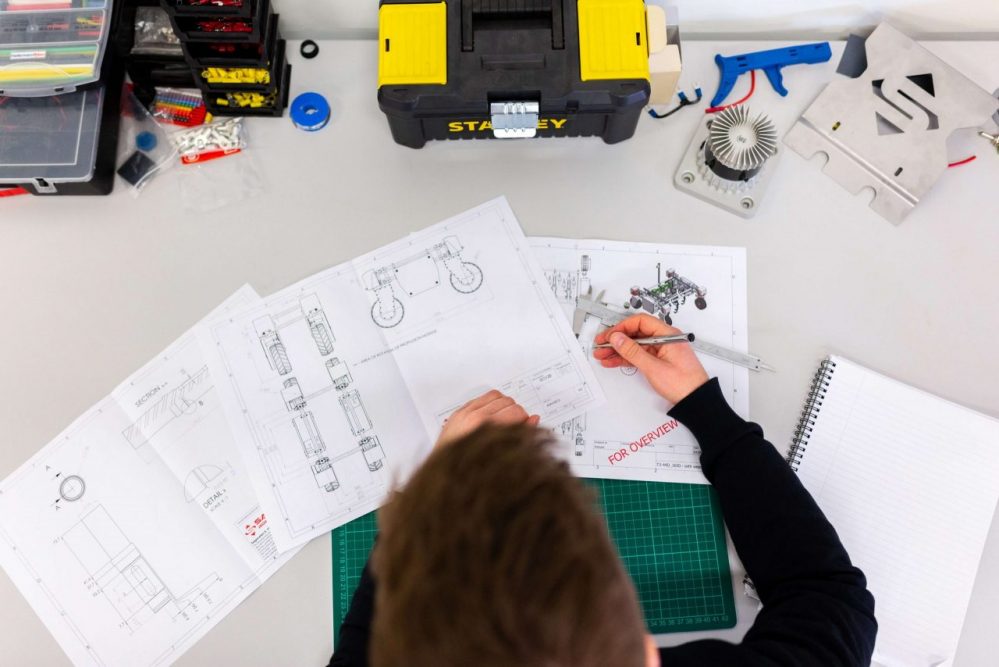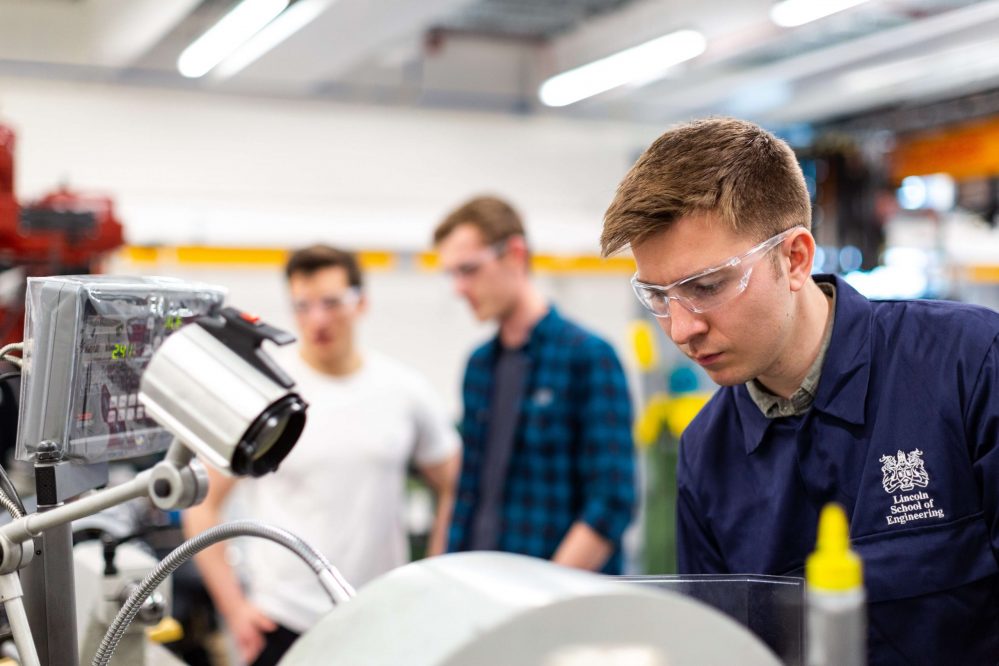Engineering is a daunting field for many people, let alone aerospace engineering. Remember when you would look at the skies, wondering if you could touch them? Now, you can, all thanks to aerospace engineering.
But is aerospace engineering hard? Read on to find out.
What Is Aerospace Engineering?
Aerospace engineering is a discipline of engineering that studies the design, testing, and manufacturing of aircraft. This branch is divided into aeronautical engineering, astronautical engineering, and avionics.
The primary job of an aerospace engineer is to design and test aircraft starting from airplanes, jets, missiles, spacecraft, and satellites. Most aerospace engineers focus on specific parts like an aircraft’s control system or wings.
Education
 People who want to pursue this career must have a bachelor’s degree in aerospace engineering or another related engineering field. If you’re a high school student, you should take courses in physics, chemistry, computer programming, and advanced math.
People who want to pursue this career must have a bachelor’s degree in aerospace engineering or another related engineering field. If you’re a high school student, you should take courses in physics, chemistry, computer programming, and advanced math.
Here are some modules that you may study:
- Aerodynamics
- Aircraft design
- Space mission analysis and design
- Mechanics of flight
- Management and business
- Airframe design and flight dynamics
If you’re a college or university student, you should expect programs and field studies in mechanics, aerodynamics, general engineering principles, and structures. Some colleges and universities may offer programs that give you practical experience while also studying.
Many universities have a 5-year program that includes both a bachelor’s degree and a master’s degree, with ABET accrediting these programs.
Important skills
Skills are necessary to launch a successful career. You are expected to be equipped with relevant skills and knowledge essential to design and manufacture aircraft or other related systems.
In aerospace engineering, there are specific skills that you can gain during your engineering courses that will be highly beneficial when you start working.
Analytical skills: An aerospace engineer must detect design elements that may not meet the required standards and then come up with alternatives to improve the functionality of those elements.
Problem-solving skills: If you’ve been attentive in school, you can use your education and experience to upgrade designs or technical issues when meeting demands for aircraft or spacecraft.
Business skills: Since aerospace engineers must meet specific standards, they must also have prior knowledge of business practices or commercial law.
Critical-thinking skills: Business and critical thinking skills go hand in hand because an aerospace engineer must have the capacity to figure out why a specific design is not working, ask the right questions, and then find a solution.
Math skills: Most certainly, aerospace engineers must have at least basic math skills in calculus, trigonometry, or other math topics to analyze, design, and test their work.
Writing skills: It may come as a surprise to you, but aerospace engineers must write clear and concise papers that explain their designs in detail or create documentation in the future. For that, great writing skills are also needed.
Licensing and certification
Of course, you must be licensed or certified to work as an aerospace engineer. Keep in mind that you’ll have to renew your licensure every two years.
To become a licensed aerospace engineer, you must:
- Have a degree from an engineering program accredited by ABET;
- Pass the Fundamental of Engineering (FE) exam;
- Pass the Professional Engineering (PE) exam;
- Have relevant work experience.
There are many exams that you need to go through before getting licensed. First, you should take a FE exam immediately after finishing your bachelor’s degree. Next, you must pass the Principles and Practice of Engineering exam, which can only be taken when you have gained some experience. Once passed, you become an engineer intern (EI) or an engineer in training (EIT).
The first step to becoming a licensed aerospace engineer is to have a certification as an Engineer-in-Training (EIT). Students must be enrolled in accredited programs and have completed at least three years of coursework or work experience.
Is Aerospace Engineering Hard?
 Yes, aerospace engineering is a challenging field of study, but that shouldn’t stop you from pursuing it. This field provides you with many opportunities and benefits that make it all worth it.
Yes, aerospace engineering is a challenging field of study, but that shouldn’t stop you from pursuing it. This field provides you with many opportunities and benefits that make it all worth it.
Above anything else, there are three common questions aspiring aerospace engineers want to know before becoming part of this challenging profession.
Is aerospace engineering stressful?
The good thing about this field is that it provides personal space for work. So, while the working environment is not that stressful, the deadlines and requirements you have to meet are. You will most probably have stringent deadlines to meet or solve a technical problem, so be prepared to work late at night.
It also depends on what you call stressful. For example, you will be stressed if math isn’t your forte. But if you think of this as an everyday lifestyle and not just a course, you’re good to go.
Is there a lot of math in aerospace engineering?
 You’ll need to study a lot of math in aerospace engineering. Initially, you’ll start with algebra and geometry and then advanced math such as calculus, trigonometry, linear algebra, differential geometry, complex analysis, and numerical analysis. So, if you don’t like math, this field is probably not the right one for you.
You’ll need to study a lot of math in aerospace engineering. Initially, you’ll start with algebra and geometry and then advanced math such as calculus, trigonometry, linear algebra, differential geometry, complex analysis, and numerical analysis. So, if you don’t like math, this field is probably not the right one for you.
Is aerospace harder than mechanical engineering?
The entrance requirements for both fields are pretty much the same. And to answer this question simply, aerospace engineering isn’t harder than mechanical engineering since they both require more or less the same skills.
What Can You Do With an Aerospace Engineering Degree?
Whether you love being creative or enjoy solving technical issues, aerospace engineering opens many doors for you to work in various industries. There are three main specializations you can take that are very beneficial.
Aerospace engineer
A career in aerospace engineering means you have to research, design, test, and develop the performance of components in aircraft or systems. You are also required to maintain the performance of:
- Civil and military aircraft
- Missiles
- Space vehicles
- Satellites
- Weapons systems
This role allows you to improve fuel efficiency, flight safety, speed and weight and reduce system costs.
Salary
An aerospace engineer in Switzerland gets paid an annual salary of CHF 95,752, so this specialization has good money.
Manufacturing systems engineer
The role of a manufacturing systems engineer is to work in a team and help with the efficiency of a product, starting from production and supply right through sales. You will also design, install, and develop high-quality products on time and at a low cost. In simple words, manufacturing systems engineers are concerned with the entire manufacturing process.
Salary
A manufacturing systems engineer in Switzerland earns an average of CHF 93,342 per year.
Mechanical engineer
 Beyond math and physics knowledge, a mechanical engineer needs to have excellent critical-thinking skills because they need to create solutions for the development of products.
Beyond math and physics knowledge, a mechanical engineer needs to have excellent critical-thinking skills because they need to create solutions for the development of products.
They work on all manufacturing stages, starting from research, design, installation, and commissioning.
Other responsibilities include:
- Design and implement cost-effective equipment to improve reliability;
- Develop new materials or technologies;
- Improve production processes’
- Solve problems with manufacturing departments, suppliers, and customers.
Salary
As one of the most diverse engineering disciplines, the demand for mechanical engineers is high. As such, the salary is also gratifying, with an annual wage of CHF 92,825, but it largely depends on experience.
Final Thoughts
Aerospace engineering is a challenging yet rewarding career that demands patience, skills, and passion. If you want to be a successful aerospace engineer, you must be passionate about this job and always try to think out of the box. The opportunities are endless, just like the space itself.


